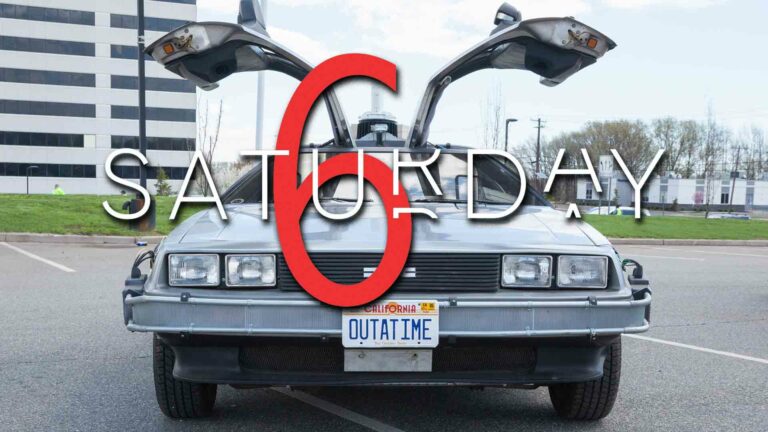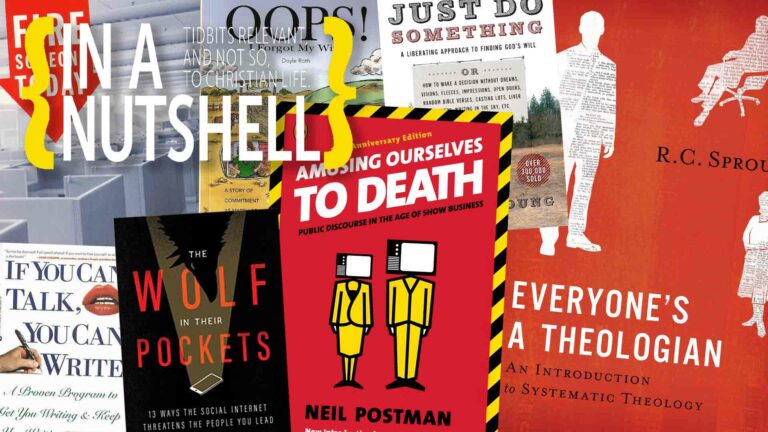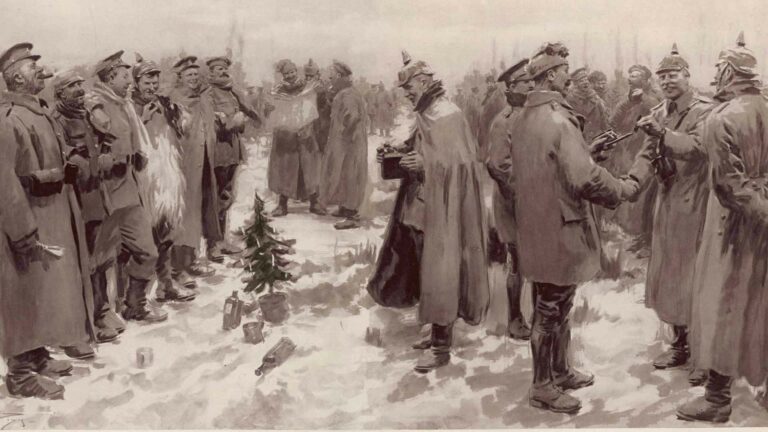Outward appearance over against the heart
Or do you not know that your body is a temple of the Holy Spirit within you, whom you have from God? You are not your own, for you were bought with a price. So glorify God in your body (I Cor. 6:19-20).
When Jehu came to Jezreel, Jezebel heard of it. And she painted her eyes and adorned her head and looked out of the window (2 Kings 9:30).
*****
Over the centuries, there have been people who died selflessly for things they held dear – country, love, honor, faith – just to mention a few. Martyrs such as Polycarp, Latimer, and Stephen died for their faith. The American patriot Nathan Hale, who famously cried out prior to his death: "I only regret that I have but one life to lose for my country," died for his homeland.
There is also another category of those who died, but by unintentionally putting their lives at risk for love of self, for vanity, and for pride.
Good Queen Bess
Queen Elizabeth I, who ruled England from 1558 to 1603, became ill with what was first assumed to be a fever. It was not. It was the dreaded smallpox. At the time of this fever, this young daughter of Henry VIII was twenty-nine years old and she had been queen for only four short years. Adored by the British public, she was known to have a good-natured smile and a trim figure. Seen wearing intricate lace collars beneath a smooth, ivory complexion, the youthful monarch considered her looks somewhat of a status symbol. Her fiery red hair was usually dotted with expensive jewels – the jewels representing her chastity. While in bed with the fever, it was feared in the court and in the country that she would die.
At the onset of her illness, Elizabeth refused to believe that she had contracted the dreaded disease. A Dr. Burcott was asked to diagnose and when he came up with the word “smallpox,” the word “fool” escaped Elizabeth's lips. A repeat visit from the man, who was quite courageous in returning to her side a second time, having been called a fool the first time, again identified the illness with these words: “Tis the pox,” whereupon Elizabeth, it is said, moaned: “God's pestilence! Which is better? To have the pox in the hand or in the face or in the heart and kill the whole body?”
No such angry words came from the lips of Mary Sidney, Elizabeth's lady-in-waiting and friend, a loyal girl who selflessly nursed her sovereign for hours throughout the illness. Mary had caught the disease from her mistress for whom she was caring and, as a result of her devotion, the girl became very disfigured. Mary Sidney's husband, Sir Henry Sidney, wrote of his wife:
"When I went to Newhaven I lefte her a full faire Ladye, in myne eye at least the fayerest, and when I retorned I found her as fowle a ladie as the smale pox could make her..."
Mary, though scarred, through her sacrificial devotion, was beautiful in the eyes of God.
When Elizabeth gazed into her looking-glass after recovering her health, she was devastated to notice that the pox had left some visible scar tissue on her face. Having been celebrated by the populace for her looks, so she thought – the elaborate gowns, her lace kerchiefs and her white skin – she now felt a certain degree of insecurity. Seeking to regain her physical loveliness in the eyes of the public, she hunted about for an answer. She began using Venetian ceruse.
Venetian ceruse was a cosmetic used as a skin whitener and it was a lead-based cosmetic. Sometimes mixed with manure for traction or with vinegar to thin out the consistency, it was popular among the rich. Because its main ingredient was lead, however, it was a potential killer. Because of her vanity and insecurity, Elizabeth began covering her facial pockmarks with this heavy, white makeup. She did not know that symptoms of lead poisoning could include abdominal pain, aggressive behavior, constipation, sleep problems, headaches, irritability, loss of appetite, loss of teeth, fatigue and high blood pressure. Some scholars believe that Elizabeth’s eventual death was due to blood poisoning from lead.
Having access to the Bible, and having read it, the young queen should have known that security was to be sought in God, not in cosmetics. Although Elizabeth's sad lack of knowledge about the danger of Venetian ceruse is to be decried, it was a far worse matter that Elizabeth put her trust and confidence in her outward appearance.
Rouged and poisoned
There is another story.
A century and a bit after Elizabeth I's reign of forty-five years, in 1733 to be exact, a young girl was born in Cambridgeshire, East England. The girl's name was Maria Gunning and she was the eldest child of six. Her father was from Castle Coote, County Roscommon in Ireland and her mother, Bridget Bourke, was the daughter of Theobald Bourke, 6th Viscount Mayo.
The Gunnings were not wealthy. On the contrary, they lived in relative poverty on father Gunning's home of Castle Coote. Considering the fact that there were six children to support, mother Bridget decided to become enterprising. When her two oldest girls were barely teens, she decreed they should take up acting. Maria and Elizabeth were both extraordinarily pretty and acting, although not a respectable occupation, could open the doors to wealthy patronage. Actually, the word “pretty” for the two daughters was mild. They were very beautiful. So, shuttled off by their mother, they traveled down to Dublin and joined the theater.
In Dublin, the sisters soon became well-known – well-known for their handsomeness. When they were but in their early teens, they were both present at a ball in Dublin Castle wearing gowns borrowed from their theater group. At this ball, Maria was introduced to the Earl of Harrington, Lord Lieutenant of Ireland. The man was so impressed with the shapely girl, that he granted mother Bridget a pension. With ready money in hand, Bridget immediately took her two daughters to England. Attending parties and dances in Maria's birthplace of Cambridgeshire, the sisters soon became acclaimed personages. Invited to attend the court of St. James, the official royal court of the king of England, they charmed him. Followed by celebrity-seeking crowds wherever they went, their popularity rose to the point where Maria was mobbed one night in Hyde Park. King George II, consequently, gave Maria a guard to protect her and, from then on, she walked in the park with two sergeants of the guard before her and twelve soldiers following her. The girls had achieved fame and notoriety. Within the small space of two years both girls were married – Elizabeth to a duke, and Maria to an earl, thus achieving the rank of Countess.
Maria's earl, the 6th Earl of Coventry, took his bride to Paris for a honeymoon. Feeling pressured to preserve the beauty which she felt sure had brought her this far up the social ladder, Maria began using rouge. Rouge was the rage at the French court, and Madame Pompadour, mistress to King Louis XV, had set a fashion of pale white skin with red rouged cheeks. The base ingredient of this makeup, as of Venetian ceruse, was lead. Although her husband did not approve of makeup, even wiping it off her face publicly with his handkerchief, Maria continued to apply thick layers onto her skin.
But the end of the matter was this – at the tender age of 27, having borne four children, Maria was diagnosed with consumption. It is reported that she retreated to a darkened bedroom in the weeks prior to her death, refusing to receive any visitors. It is also said that her early death was a “death by vanity,” because lead poisoning from her excessive use of makeup probably contributed to her demise.
Maria Gunning, or Countess Maria of Coventry, was the owner of a 7-foot mirror and countless jars of rouge. The mirror caused her mental anguish when she gazed into it prior to her death. The rouge caused her physical discomfort and, in the long run, death. Maria had not the spiritual comfort of being beautiful and secure in the eyes of God. She had existed a decade of being feted and admired by the world. But what is that, compared to an eternity?!
Not limited to the past
We can travel further down in history.
In 1867, there was an advertisement placed in a local newspaper in Montreal. The ad praised Dr. Campbell's safe arsenic complexion wafers, as well as acclaiming Dr. Fould's medicated arsenic complexion soap. Both were touted to be wonderful for removing freckles, blackheads, pimples, vulgar redness, rough yellow or muddy skins and all other disfigurements whether on the face, neck, arms or body. The promotion went on to say that if you desired a transparent and clear complexion free from coarseness or blotches, these medications should be tried, by men as well as women, and could be mailed to your address or bought at your local pharmacist.
We know, without a doubt, that taking arsenic is bad. Although arsenic destroys red blood cells, which does lead to pale, desired skin, it will eventually kill you.
Today as well, harmful ingredients can hide in lipstick, mascara and rouge – ingredients which can wreak havoc with your body.
It is a fact that the chemical lead can poison. It hides in many industrial sources, foods, and spices, as well as in everyday cosmetics. Lead, it is said, makes cosmetic colors pop and helps products resist moisture. Many countries have developed strict controls of lead in cosmetics. Sixty-five countries have even banned it outright. But it is still an ingredient among cosmetics in many low- and middle-income countries.
There are other health matters which a Christian might keep in mind as he or she considers their appearance. For the woman, there is a shoe choice to be made every day. Granted, we are not all Imelda Marcos material (Imelda was the wife of the former Philippine dictator, Ferdinand Marcos Sr., and infamously owned 3,000 pairs of shoes), but we do choose our footwear each day. Some women choose very high heels. Wearing stiletto, or any kind of heels, can certainly cause unpleasant side effects – these side effects can include lower back pain, sore calf muscles, protruding veins and constricted blood vessels. All these side effects taken together can sooner or later result in an ugly deformity of the foot called “hammer toe.”
Then there is the issue of tight clothing. Wearing close-fitting outfits, often chosen in a desire to be more attractive to the opposite sex, is not only morally unhealthy and not according to Scripture, but also physically unwise. Making a tight garment choice can lead to yeast infections, cause difficulty in breathing and bring on abdominal pain. Tight pants can cause tingling thigh syndrome and “low waist” tight jeans can cause digestive issues and will lead to back pain. It is judicious to wear apparel which keeps circulation flowing. Indeed, it is wise and pleasing in God's eyes to be modest and discreet in dress.
Conclusion
It is no sin for a woman to want to look pretty. It is no sin to dress attractively and it is no sin to rejoice in the body God has given you.
But to depend on physical appearance, to seek security in outward looks, to rely on your exterior for your relationship with others or for your assurance and self-esteem, is not what the Bible teaches. Neither are we to judge others on their outward appearance, but rather we are to evaluate people on their confession of faith and on the fruits of the Spirit they display. We are to be merciful in judgment and we are always to remember that God, and God only, sees the heart.
Being beautiful for God can actually cause pain. Living and humbling yourself before others, can cause hurt and hardship. So, indeed, our Lord and Savior found it to be. For it is said of Him in Isaiah 53 that:
“He had no form or majesty that we should look at Him, and no beauty that we should desire Him. He was despised and rejected by men, a Man of sorrows and acquainted with grief; and as one from whom men hide their faces He was despised, and we esteemed Him not.”
Jesus did not eschew a marred countenance; He did not try to cover His wounds for the sake of resembling a more pleasing impression in the eyes of those beholding Him. In fact, His wounds are what make Him beautiful.
We do well to remember throughout our earthly life that Jesus “was pierced for our transgressions; He was crushed for our iniquities; upon Him was the chastisement that brought us peace, and with His wounds we are healed” (Is. 53:5). Knowledge of this and faith in this, gives us beauty of countenance; knowledge of this and faith in this, gives us assurance in life; knowledge of this and faith in this, gives us a reason to live.
Have a blessed 2024!...
































